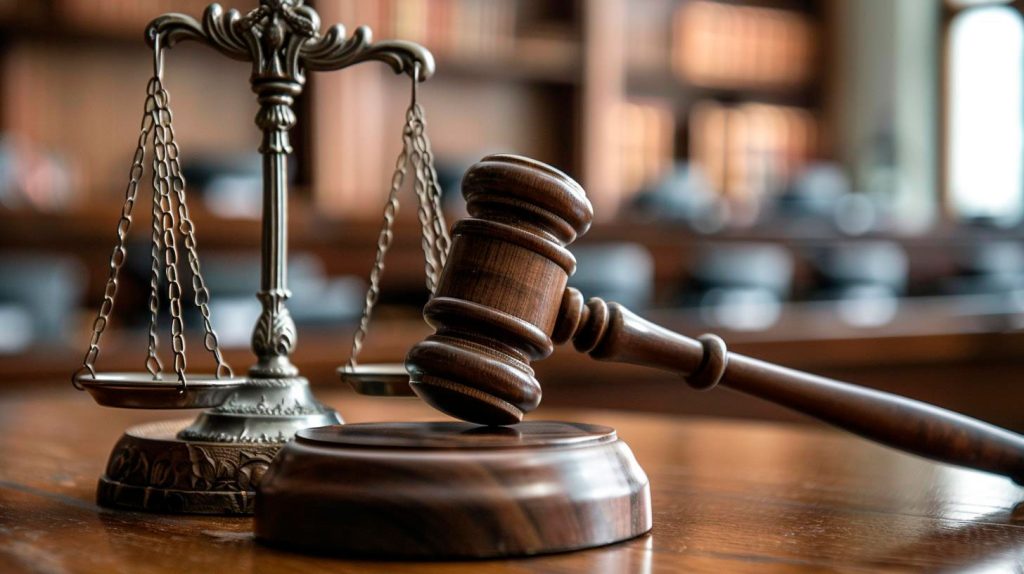
Steps to Take Before Filing a Lawsuit Against Credit Reporting Agencies
If you have tried unsuccessfully to resolve issues with a credit reporting agency on your own, you may be considering filing a lawsuit. Before you take that step, there are several important things to consider.
1. Review Your Credit Report
The first step in the process is to carefully review your credit report. Look for any inaccuracies, outdated information, or fraudulent activity. According to a report by the Federal Trade Commission, about 20% of consumers have at least one error on their credit report. This underscores the importance of reviewing your credit report regularly and correcting any mistakes.
If you do find errors, you should file a dispute with the credit reporting agency in question. They are required by law to investigate your claim within 30 days and either correct the error or provide a valid reason for not doing so.
2. Keep Detailed Records
It is crucial to keep detailed records of all communications with the credit reporting agency, including letters, emails, and phone calls. Document the dates and times of each interaction, as well as the names of any representatives you speak with. This information will be valuable in the event that you need to take legal action.
Additionally, keep copies of any correspondence you receive from the credit reporting agency, as well as any documentation that supports your claim of inaccuracies on your credit report. This evidence will be essential in building a strong case against the credit reporting agency.
3. Consult with a Lawyer
If you have been unable to resolve the issue with the credit reporting agency on your own, it may be time to seek legal advice. A lawyer who specializes in consumer protection law can help you navigate the complexities of filing a lawsuit against a credit reporting agency.
According to a study by the Consumer Financial Protection Bureau, consumers who hired a lawyer to help them with credit reporting issues were more likely to have errors removed from their credit report. This underscores the importance of seeking professional legal assistance.
4. Know Your Rights
Before moving forward with a lawsuit, it is important to understand your rights under the Fair Credit Reporting Act (FCRA). This federal law governs how credit reporting agencies handle consumer information and provides consumers with certain rights regarding their credit reports.
Under the FCRA, consumers have the right to dispute any inaccuracies on their credit report and to have them corrected in a timely manner. If a credit reporting agency violates your rights under the FCRA, you may be entitled to damages in a lawsuit.
5. Consider Alternative Dispute Resolution
In some cases, it may be possible to resolve disputes with a credit reporting agency through alternative dispute resolution methods such as mediation or arbitration. These processes can be less adversarial and time-consuming than going to court, and may result in a quicker resolution of the issue.
Before pursuing legal action, it may be worth exploring these alternative options to see if they can help you reach a satisfactory resolution with the credit reporting agency.
Dealing with credit reporting agencies can be a frustrating and time-consuming process. However, by following these steps and seeking professional legal assistance when needed, you can increase your chances of successfully resolving issues with a credit reporting agency. Remember to always review your credit report regularly, keep detailed records of all communications, and know your rights under the law. With the right approach, you can take control of your credit report and protect your financial future.
Utilizing Consumer Protection Laws to Address Credit Repair Disputes
Fortunately, there are a number of consumer protection laws in place to help individuals who have been taken advantage of by credit repair companies.
The Fair Credit Reporting Act (FCRA)
One of the most important laws to be aware of when it comes to credit repair is the Fair Credit Reporting Act (FCRA). This federal law regulates the collection, dissemination, and use of consumer credit information. Under the FCRA, consumers have the right to dispute inaccurate or incomplete information on their credit reports. Credit reporting agencies are required to investigate these disputes and correct any errors within a reasonable amount of time.
Individuals who have been the victims of credit repair scams can use the FCRA to hold credit repair companies accountable for their actions. If a credit repair company has made false promises or engaged in deceptive practices, consumers have the right to seek damages under the FCRA.
The Credit Repair Organizations Act (CROA)
Another important law to be aware of is the Credit Repair Organizations Act (CROA). This federal law regulates the credit repair industry and provides consumer protections against deceptive practices. Under the CROA, credit repair companies are prohibited from making false statements about the services they provide and are required to disclose certain information to consumers before they sign a contract.
Individuals who have been the victims of credit repair scams can use the CROA to take legal action against unscrupulous credit repair companies. If a credit repair company has violated the CROA, consumers have the right to seek damages and have the company held accountable for its actions.
The Benefits of Utilizing Consumer Protection Laws
By utilizing consumer protection laws such as the FCRA and CROA, individuals can protect themselves against credit repair scams and hold unscrupulous companies accountable for their actions. These laws provide consumers with the tools they need to dispute inaccurate information on their credit reports and seek damages for any harm caused by deceptive practices.
Statistics show that the number of complaints related to credit repair scams has been on the rise in recent years. In 2020, the Consumer Financial Protection Bureau received over 19,000 complaints related to credit repair services, up from just over 11,000 complaints in 2016. This highlights the need for consumers to be vigilant when it comes to credit repair and to take advantage of consumer protection laws to protect themselves.
Consumer protection laws play a crucial role in addressing credit repair disputes and holding unscrupulous companies accountable. By being informed about their rights under laws such as the FCRA and CROA, individuals can take action to protect themselves from credit repair scams and seek damages for any harm caused. If you believe you have been the victim of a credit repair scam, it’s important to seek legal advice and explore options for recourse under consumer protection laws.
At [Company Name], we are committed to helping individuals navigate credit repair disputes and protect their rights as consumers. Our team of experienced lawyers is dedicated to advocating for clients who have been harmed by credit repair scams and ensuring that they receive the justice they deserve.
When to Seek Legal Assistance for Credit Report Errors
If you discover an error on your credit report, it is important to take immediate action to correct it.
Common Types of Credit Report Errors
There are several common types of errors that can appear on your credit report, including:
- Incorrect personal information, such as name, address, or date of birth
- Accounts that do not belong to you
- Accounts that show a history of late payments when you have always paid on time
- Duplicate accounts
- Incorrect credit limits or balances
These errors can result from a variety of factors, including clerical errors, identity theft, or inaccurate reporting by creditors. Regardless of the cause, it is crucial to address these errors as soon as possible to prevent negative consequences.
Why You Should Seek Legal Assistance
If you have discovered errors on your credit report, you may be wondering whether you need to hire a lawyer to help you resolve the issue. While it is possible to dispute errors on your own, seeking legal assistance can provide several benefits, including:
- Expertise: Lawyers specializing in credit report errors have the knowledge and experience to navigate the complex process of disputing inaccuracies with credit reporting agencies and creditors.
- Efficiency: Legal professionals can handle all aspects of the dispute process, saving you time and ensuring that the errors are corrected promptly.
- Resolution: Lawyers can often negotiate with creditors on your behalf to reach a resolution that is favorable to you, such as removing inaccuracies or negotiating settlements.
When to Seek Legal Help
While you can attempt to dispute credit report errors on your own, there are certain situations where it may be more beneficial to seek legal assistance. These include:
- When errors are significantly impacting your credit score and financial stability
- When errors are the result of identity theft or fraud
- When you have already attempted to dispute the errors on your own without success
- When errors are preventing you from obtaining credit or loans
It is important to remember that time is of the essence when it comes to correcting credit report errors. The longer inaccuracies remain on your report, the more harm they can cause to your financial reputation and opportunities.
If you discover errors on your credit report, it is essential to take immediate action to correct them. While you can attempt to dispute inaccuracies on your own, seeking legal assistance can provide valuable support and expertise to ensure that the errors are addressed effectively. By knowing when to seek legal help for credit report errors, you can protect your financial wellbeing and ensure that your credit report accurately reflects your financial history.













Y’all, I heard about this legal resource for resolving credit repair disputes. Has anyone tried it? Is it legit?
I’ve been dealing with these credit bureaus for so long, I’m ready to throw in the towel. Are there any legal resources that can help with credit repair disputes?
Don’t give up just yet! Legal resources can assist you in resolving credit repair disputes and improving your credit score.
Yo, can someone explain how to access these legal resources for credit repair disputes? I’m lost.
From what I understand, the legal process for credit repair disputes involves sending a written complaint to the credit bureau and waiting for an investigation to take place.
I don’t trust those kind of services. I’d rather handle my own credit disputes. Anyone know what the legal process is like?
It may be beneficial to consult with a lawyer for credit repair disputes, especially if the errors are not being corrected by the credit bureaus.
My credit report has errors on it and it’s affecting my ability to get a loan. Do I need a lawyer to help with credit repair disputes?
To access legal resources for credit repair disputes, you can reach out to consumer protection agencies, legal aid organizations, or hire a credit repair attorney.
Lawyers cost a lot of money though. Are there any free legal resources available to help with credit repair disputes?
I’ve used a similar service before and it worked wonders for my credit score. Highly recommend!
There are free legal resources available, such as legal aid organizations or consumer protection agencies, that can assist with credit repair disputes at no cost to you.